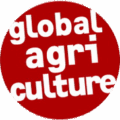Conceived in 2002 by the World Bank and the UN’s Food and Agriculture
Organization, the IAASTD began work under Bob Watson’s command in 2004
with the aim of improving life, health and prosperity for millions of poor
farmers. The haggling will be fierce, however, because the draft strays into divisive economic, ideological,
legal and political territory – way beyond its original brief of simply showcasing science and
technology that can help poor farmers.
For some delegates, the proposed options for change are too radical to stomach. Representatives
of the biotechnology industry, for example, stormed out of the negotiations earlier this year,
arguing that the potential of genetically modified crops to help poor farmers and combat global
warming was being overlooked, and undue weight given to alternatives such as organic farming.
